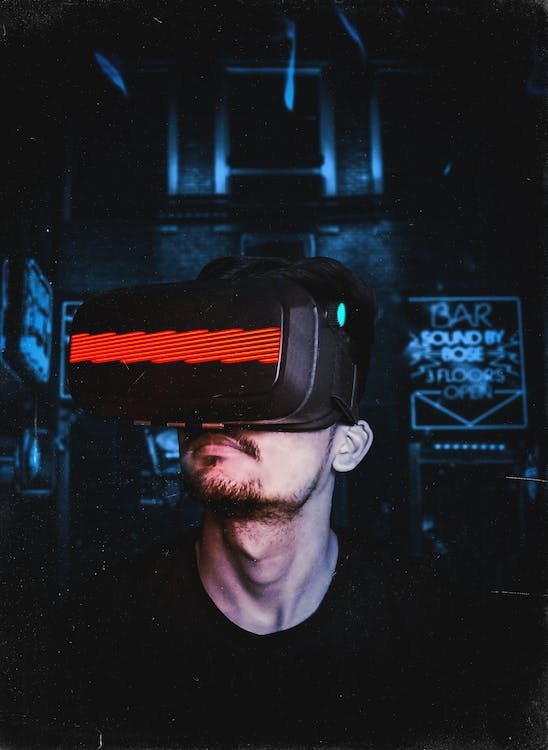As we plunge deeper into the digital age, the world of video games, a sector that has been around for decades, is undergoing a revolution. The catalyst for this evolution is none other than artificial intelligence (AI). The question, “how does AI impact gaming?” is one that is increasingly asked by industry professionals and gamers alike. In this article, we will explore the impact of AI on the gaming industry, and how it’s shaping the future of this sector.
Why Are We Discussing This?
Understanding the impact of AI on gaming is crucial for several reasons. Firstly, gaming is a multi-billion dollar industry that affects millions of people worldwide. Secondly, the technologies developed for gaming often find their way into other sectors, from healthcare to education. Finally, the advancements in AI have the potential to revolutionize not just the future of gaming, but also how we interact with digital platforms in general.
Table of Contents
- 1. Creating More Intelligent NPCs
- 2. Revolutionizing Game Design
- 3. Enhancing the Player Experience
- 4. Advancing Cheat Detection
- 5. Shaping the Future of Gaming
- Conclusion
1. Creating More Intelligent NPCs

- Non-playable characters (NPCs) play a vital role in video games, acting as allies, enemies, and information sources. However, traditional NPCs work based on predefined scripts and can feel robotic. AI is changing this:
- AI can equip NPCs with learning capabilities, enabling them to adapt their behavior based on player interactions. This makes the game world more dynamic and realistic.
- Game developers can use AI to create NPC personalities, habits, and decision-making processes, making them more humanlike. This can significantly enhance the game’s immersion and unpredictability.
- In multiplayer games, AI-driven NPCs can fill in for missing human players, maintaining the balance and complexity of gameplay. This can substantially improve the overall gaming experience.
- AI can equip NPCs with learning capabilities, enabling them to adapt their behavior based on player interactions. This makes the game world more dynamic and realistic.
2. Revolutionizing Game Design

- Game design involves creating the structure, rules, story, characters, and environment of a game. It’s a complex, time-consuming process that AI is starting to revolutionize:
- AI can automate certain aspects of game design, such as level design and character creation, reducing manual labor and increasing efficiency.
- AI can generate random, yet coherent, game worlds, leading to games that are unique for each player. This can significantly enhance the replay value of games.
- By using AI to test gameplay mechanics and balance, developers can ensure that their games are fun and fair for all players. This can lead to higher-quality games and happier players.
- AI can automate certain aspects of game design, such as level design and character creation, reducing manual labor and increasing efficiency.
3. Enhancing the Player Experience

- At the end of the day, the success of a game is determined by how much the players enjoy it. AI has a lot of potential to enhance the player experience:
- AI can personalize gameplay by learning from each player’s behaviours and preferences. This can make the game more engaging and enjoyable for individual players, as the game adapts to their style of play.
- In multiplayer games, AI can create balanced matches by pairing players of similar skill levels together. This can lead to more enjoyable and fair gameplay, as players are less likely to be matched with opponents who are much stronger or weaker than them.
- AI can also improve the in-game assistance offered to players. For instance, AI can provide personalized tips and tutorials, or even serve as an in-game coach, helping players improve their skills and enjoy the game more.
- AI can personalize gameplay by learning from each player’s behaviours and preferences. This can make the game more engaging and enjoyable for individual players, as the game adapts to their style of play.
4. Advancing Cheat Detection

- Cheating is a serious issue in gaming that can ruin the experience for many players. AI can help to mitigate this problem:
- AI can monitor player behaviour in real-time to detect patterns that are indicative of cheating. Once a potential cheater is identified, the system can issue warnings, impose penalties, or even ban the player, helping to maintain a fair and enjoyable gaming environment.
- AI can also be used to detect bots, which are programs that play the game automatically. These bots often have unnatural playing patterns that can be detected by AI, helping to preserve the integrity of the game. We also talk about this in-depth in our article “AI: The Unsung Hero in the Fight Against Video Game Cheating“
- AI can monitor player behaviour in real-time to detect patterns that are indicative of cheating. Once a potential cheater is identified, the system can issue warnings, impose penalties, or even ban the player, helping to maintain a fair and enjoyable gaming environment.
5. Shaping the Future of Gaming

- The future of AI in gaming is a topic of much speculation and anticipation. As AI technology continues to evolve, so too will its impact on gaming:
- Games of the future could feature AI so advanced that NPCs become indistinguishable from human players in their behavior and decision-making. This could open up new possibilities for gameplay, such as NPCs that can form complex strategies, deceive players, or even develop their own storylines.
- AI could also lead to the creation of entirely new genres of games, built around the unique possibilities that AI-enabled gameplay can offer. For instance, we could see games where the main challenge is to outsmart advanced AI opponents, or games that evolve over time based on the collective actions of players.
- As AI becomes more integrated into gaming, we can anticipate an industry that continually pushes the boundaries of what’s possible in virtual worlds. This could lead to games that are more immersive, more unique, and more responsive than anything we’ve seen before.
- Games of the future could feature AI so advanced that NPCs become indistinguishable from human players in their behavior and decision-making. This could open up new possibilities for gameplay, such as NPCs that can form complex strategies, deceive players, or even develop their own storylines.
Conclusion
From creating more intelligent NPCs to revolutionizing game design, AI is having a profound impact on the gaming industry. As we look toward the future, it’s clear that AI will continue to play a significant role in shaping the gaming experiences of tomorrow. The potential applications of AI in gaming are vast, and we’ve only scratched the surface of what’s possible. So, how will AI change gaming in the future? Only time will tell, but the possibilities are truly exciting. As AI technology continues to evolve, we can expect to see more and more innovative uses of AI in games, leading to a gaming industry that is more dynamic, more immersive, and more engaging than ever before.



Can you be more specific about the content of your article? After reading it, I still have some doubts. Hope you can help me.
Your article helped me a lot, is there any more related content? Thanks!
I don’t think the title of your article matches the content lol. Just kidding, mainly because I had some doubts after reading the article.
I don’t think the title of your article matches the content lol. Just kidding, mainly because I had some doubts after reading the article.
Thank you for your sharing. I am worried that I lack creative ideas. It is your article that makes me full of hope. Thank you. But, I have a question, can you help me?
Thank you for your sharing. I am worried that I lack creative ideas. It is your article that makes me full of hope. Thank you. But, I have a question, can you help me?
Thank you for your sharing. I am worried that I lack creative ideas. It is your article that makes me full of hope. Thank you. But, I have a question, can you help me?
Thanks for sharing. I read many of your blog posts, cool, your blog is very good.
Very superb information can be found on web blog.
Hmm is anyone else experiencing problems with the pictures on this blog loading? I’m trying to determine if its a problem on my end or if it’s the blog. Any feedback would be greatly appreciated.
I don’t think the title of your article matches the content lol. Just kidding, mainly because I had some doubts after reading the article.
Super-Duper website! I am loving it!! Will be back later to read some more. I am taking your feeds also
Thank you for your sharing. I am worried that I lack creative ideas. It is your article that makes me full of hope. Thank you. But, I have a question, can you help me?
Thank you for your sharing. I am worried that I lack creative ideas. It is your article that makes me full of hope. Thank you. But, I have a question, can you help me?
Thanks for sharing. I read many of your blog posts, cool, your blog is very good.
Thanks for sharing superb informations. Your web-site is very cool. I am impressed by the details that you have on this website. It reveals how nicely you understand this subject. Bookmarked this web page, will come back for extra articles. You, my pal, ROCK! I found simply the information I already searched everywhere and just could not come across. What an ideal web-site.
I’ve been absent for some time, but now I remember why I used to love this blog. Thanks, I will try and check back more frequently. How frequently you update your website?
F*ckin¦ remarkable things here. I¦m very satisfied to look your article. Thanks a lot and i am taking a look ahead to contact you. Will you kindly drop me a e-mail?
Can you be more specific about the content of your article? After reading it, I still have some doubts. Hope you can help me.
Can you be more specific about the content of your article? After reading it, I still have some doubts. Hope you can help me.
I definitely wanted to type a quick comment to be able to thank you for all of the stunning information you are posting on this site. My extended internet look up has finally been recognized with excellent ideas to write about with my colleagues. I ‘d assume that many of us website visitors actually are very endowed to live in a superb community with many special people with beneficial plans. I feel pretty fortunate to have seen your site and look forward to so many more exciting moments reading here. Thanks again for a lot of things.
Oh my goodness! an incredible article dude. Thanks However I’m experiencing concern with ur rss . Don’t know why Unable to subscribe to it. Is there anyone getting identical rss drawback? Anyone who knows kindly respond. Thnkx
WONDERFUL Post.thanks for share..more wait .. …
Everything is very open and very clear explanation of issues. was truly information. Your website is very useful. Thanks for sharing.
Great article and right to the point. I am not sure if this is really the best place to ask but do you people have any thoughts on where to get some professional writers? Thx 🙂
I don’t think the title of your article matches the content lol. Just kidding, mainly because I had some doubts after reading the article.